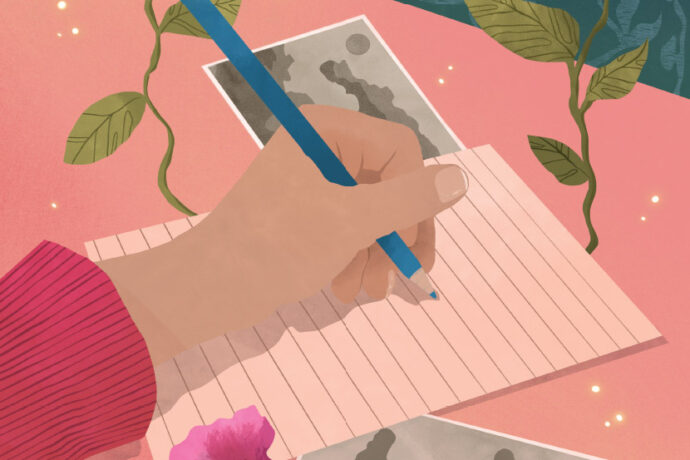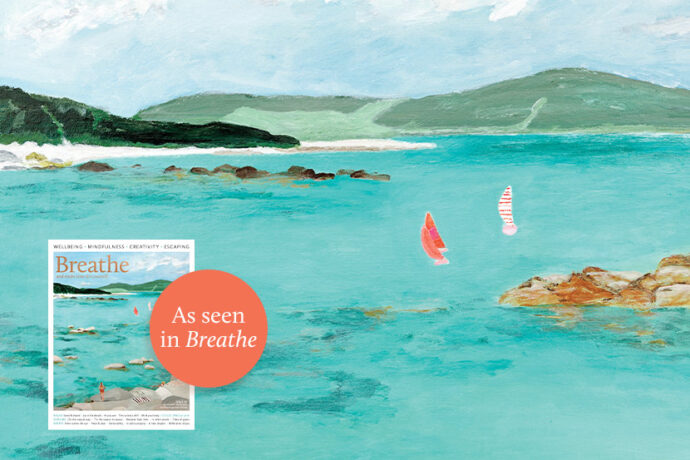
Great stories are all about the opening line. But what is the secret to writing one that will get your readers hooked?
SET THE SCENE
A lot of novels start with the weather, the landscape or the scene where they are set. But of course, they’re not just writing about the weather – they’re telling you something else about the tone, the feeling and what is to come as the story progresses. That could mean introducing the interiors and the rules of a different world as Veronica Roth does in teen sci-fi novel Divergent, or laying out the historic and poetic setting of the piece as Charles Dickens does at the beginning of A Tale of Two Cities.
‘There is one mirror in my house. It is behind a sliding panel in the hallway upstairs. Our faction allows me to stand in front of it on the second day of every third month, the day my mother cuts my hair.’
Divergent, Veronica Roth
‘It was the best of times, it was the worst of times, it was the age of wisdom, it was the age of foolishness, it was the epoch of belief, it was the epoch of incredulity, it was the season of Light, it was the season of Darkness, it was the spring of hope, it was the winter of despair.’
A Tale of Two Cities, Charles Dickens
MAKE THEM LOOK AGAIN
Some of the most famous first lines in literature are those that seem like they are, or are going to be, fairly straightforward – and then stop you in your tracks and make you go back. Must a single man in possession of a good fortune really be in want of a wife? Are you sure? And what were those clocks striking again in 1984? In the third example below, James Joyce purports to be an omniscient narrator in the opening line of his short story The Dead, the best known of his Dubliners collection – but hang on a minute, how can Lily be literally run off her feet? And in Bliss, by much-loved novelist Peter Carey, how perplexed are we to know that Harry Joy will die three times? These lines tell us that the story we’re about to read is not quite what it may seem – and remind us not to judge a book by its cover.
‘It is a truth universally acknowledged, that a single man in possession of a good fortune, must be in want of a wife.’
Pride and Prejudice, Jane Austen
‘It was a bright cold day in April, and the clocks were striking thirteen.’
1984, George Orwell
‘Lily, the caretaker’s daughter, was literally run off her feet.’
The Dead, James Joyce
‘Harry Joy was to die three times, but it was his first death which was to have the greatest effect on him, and it is this first death which we shall now witness.’
Bliss, Peter Carey
CREATE A STRONG VOICE
Characters draw you into a story, and a compelling voice is key to taking readers on a journey. In these opening lines, characters use language and expression to share that this isn’t a story you’re likely to have heard before – and leave you ready to learn more. That can work in all sorts of different ways, from the dismissive adolescent anger of JD Salinger’s Holden Caulfield, to the desperate pathos of Celie in Alice Walker’s The Color Purple.
‘If you really want to hear about it, the first thing you’ll probably want to know is where I was born, and what my lousy childhood was like, and how my parents were occupied and all before they had me, and all that David Copperfield kind of crap, but I don’t feel like going into it.’
The Catcher in the Rye, JD Salinger
‘Dear God, I am fourteen years old. I am I have always been a good girl. Maybe you can give me a sign letting me know what is happening to me.’
The Color Purple, Alice Walker
THE ELEMENT OF SURPRISE
A writer could draw readers in with something completely out of the blue. Franz Kafka sets out the premise of his story almost like a news report in the first line of Metamorphosis – but it’s such a shocking statement you’re bound to read on. Joseph Heller’s Catch-22 starts like a regular love story, but then surprises the reader: while two men falling in love may be a fairly straightforward story in the 21st century, when this book was first published in 1955 it would certainly have raised eyebrows. And in Douglas Coupland’s Girlfriend in a Coma, a friendly chatty ghost introducing himself is pretty much the last thing you might expect.
‘When Gregor Samsa woke up one morning from unsettling dreams, he found himself changed in his bed into a monstrous vermin.’
Metamorphosis, Franz Kafka
‘It was love at first sight. The first time Yossarian saw the chaplain he fell madly in love with him.’
Catch-22, Joseph Heller
‘I’m Jared, a ghost.’
Girlfriend in a Coma, Douglas Coupland
NO RULES FOR ME
Read all the rules above – and then tear them up. There are simply no rules when it comes to crafting a great opening line. Charlotte Brontë’s timeless novel Jane Eyre begins with the line: ‘There was no possibility of taking a walk that day.’ It’s one of the great opening lines of all time, from one of the great novels of all time, but I’m not really sure why – it seems perfectly ordinary. And yet there is something about it that has drawn readers in for centuries.
Another famous opening line is ‘Call me Ishmael’, from Herman Melville’s Moby Dick. It’s as simple as any greeting on the street – and yet it’s compelling.
Perhaps it’s the ordinary setting you up for an extraordinary experience. JK Rowling’s opening to Harry Potter and the Philosopher’s Stone is all about being normal – and yet with a casual ‘thank you very much’ it invites you into a world of magic and mystery. Perhaps that’s what all truly great opening lines do.
‘Mr and Mrs Dursley of number four, Privet Drive, were proud to say that they were completely normal, thank you very much.’
Harry Potter and the Philosopher’s Stone, JK Rowling


















